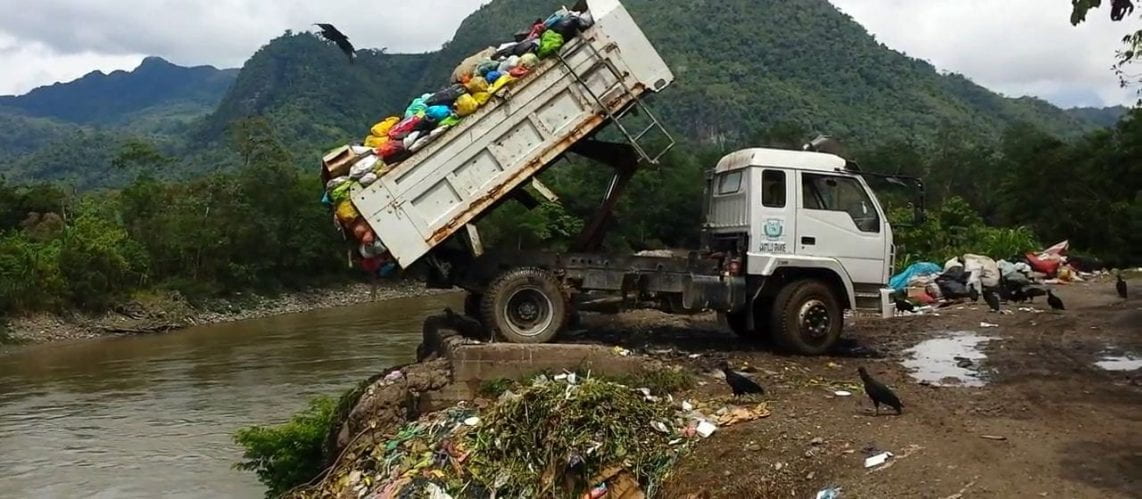Socio-environmental conflicts
Guha, R. (1989). Radical American Environmentalism and Wilderness Preservation : A Third World Critique.
Published in 1989, “Radical American Environmentalism and Wilderness Preservation. A Third World Critique ” by Ramachandra Guha presents a critique of the principles of “deep ecology,” a perspective introduced by Norweigan philosopher Arne Naess. These four principles are defined as the shift from anthropocentric viewpoints to biocentric, preservation of untouched wilderness, the invocation of Eastern spiritual traditions, and a focus on the “leading edge.” Guha (1989) critiques these principles for their inability to address both human and environmental issues that affect the poor, citing the root of foundational environmental problems to be overconsumption and militarization. The essay provides a fundamental critique of environmental justice theory: a necessity in order to understand the conversation throughout the academic community.
Rodríguez-Labajos B., Özkaynak B. (2018). Environmental justice through the lens of mining conflicts. Geoforum: 84, p. 245-250.
Rodríguez-Labajos, B., Yánez, Y., Bond, P., Greyl, l., Munguti, S., Ojo, G.U., & Overbeek, W. (2019). Not So Natural an Alliance? Degrowth and Environmental Justice Movements in the Global South. Ecological Economics: 157, p. 175-184.
Extractive industries
de Castro, F. (2012). Multi-scale environmental citizenship: Traditional populations and protected areas in Brazil in Environmental and Citizenship in Latin America: Natures, Subjects, and Struggles. Latta, A. & Wittman , H. (eds). CEDLA Latin America Studies 101. New York: Berghahn Books, pp. 39-58.
de Castro, F. (2013). Between Cooperation and Conflict: The Implementation of Agro-Extractive Settlements in the Lower Amazon Floodplain in Human-Environment Interactions: Current and Future Directions. Brondizio, E. & Moran, E. (eds). Dordrecht: Springer, pp.213-23.
Gómez-Barris, Macarena. The Extractive Zone: Social Ecologies and Decolonial Perspectives (Dissident Acts). https://doi.org/10.1017/eso.2018.63
Orta-Martínez, M., & Finer, M. Oil frontiers and indigenous resistance in the Peruvian Amazon. (2010). Ecological Economics, 70(2), 207-218.
Yusta-García, R., Orta-Martínez, M., Mayor, P., González-Crespo, C., & Rosell-Melé, A. (2017). Water contamination from oil extraction activities in Northern Peruvian Amazonian rivers. Environmental Pollution: 225, p. 370-380.
Local knowledge
Carruthers, D. (2008). The Globalization of Environmental Justice: Lessons from the US-Mexico Border. Society and Natural Resources, 21(7), 556-568. https://doi.org/10.1080/08941920701648812
Carruthers, D. (2012). Donde lo local se encuentra con lo global: justicia ambiental en la frontera entre Estados Unidos y México in Voluntad Indómita, Fundamentos Teóricos de la Acción Colectiva. Brett, R. & Cante, F. (eds). Bogotá, Colombia: Universidad del Rosario, p. 277-301.
Martinez-Alier, J. (2001). Mining conflicts, environmental justice, and valuation. Journal of Hazardous Materials, 86(1-3), 153-170.
Martinez-Alier, J. (2003). The Environmentalism of the poor: a study of ecological conflicts and valuation. Edward Elgar Publishing.
Rodríguez, I., Inturias, M., Robledo, J., Sarti, C., Borel, R., & Cabria, A. (2015). Abordando la Justicia Ambiental desde la Transformación de Conflictos: experiencias en América Latina con Pueblos Indígenas. Revista de Paz y Conflictos, 2(8), 97-128. https://ueaeprints.uea.ac.uk/id/eprint/72970/1/Published_Version.pdf
Rodríguez, I., & Inturias, M. (2018). Conflict transformation in indigenous peoples’ territories: doing environmental justice with a “decolonial turn.” Development Studies Research, 5(1), 90–105. https://doi.org/10.1080/21665095.2018.1486220


